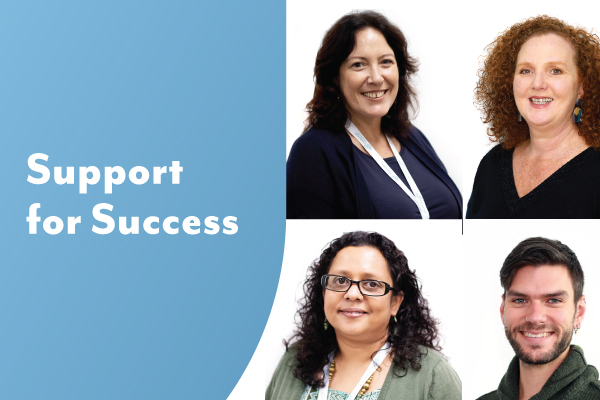The results are in from the latest survey from the National Centre for Vocational Education Research (NCVER), and Selmar is on track, continuing to deliver training satisfaction and employment outcomes for learners. Informing and influencing the vocational education and training (VET) space in Australia drives NCVER’s research, and each year learners who have completed studies in the VET sector are invited to take part in their student outcomes survey.
Selmar is committed to its belief that education should be human-centred — as such, results such as those from the NCVER survey are important to us. They add to our own feedback processes to ensure that we are always maximising the outcomes for our learners, and providing a rewarding training experience.
Optimal online and distance learning
As we, along with much of the world, shifted to studying online from the onset of the pandemic, optimising the distance and online learning experiences was of paramount importance.
We didn’t want our learners to feel that they would miss out by taking a course via distance mode or online learning, so our approach meant that learners received a dedicated trainer and comprehensive support regardless of their course delivery mode.
The results speak for themselves, with 91.2% were satisfied with the overall quality of their training. Our online early childhood education learners access their training via our state-of-the-art online learning portal. Learners visit the portal to access materials and submit assessments. They can get interactive with their training with videos and quizzes. This is next level online training.
Going beyond individual support, we want our learners to join a community of like-minded people — enter, our Online Community Hubs.
Our trainer-led learner community hubs are small online group webinar sessions, where learners can actively engage with trainers and peers, asking questions, and finding solutions together. These learning hubs allow our learners to gain deeper understanding of the course material and to help them progress in their studies.
Enhancing employment through quality training
Of course, while the training journey is important, gaining meaningful outcomes for learners is a priority. Whether it’s upskilling or entering their chosen sector, where your studies take you really matters.
For survey respondents who trained with Selmar, combining aged care learners and those completing studies in early childhood education, 90.1% of Selmar learners were employed or enrolled in further study after training with us. Further, 78.4% of Selmar graduates reported that they improved their employment status after completing their training with us.
Supporting the aged care and early childhood education sectors
When assessing what makes a course successful or of high quality, its commitment to its relevant sector is essential. A course should know the sector it is catering to inside and out, with a goal of raising the standard and supporting it to thrive.
We were pleased to find that 92.5% of our learners found Selmar’s training relevant to their job. This demonstrates that we are meeting the needs of our learners, their chosen sectors, the workforce and those who rely on them.
Striving for continual improvement and growth
The results of the annual NCVER Survey are promising and tell us that Selmar’s aged care and early childhood education courses are meeting the needs of learners in each sector.
That said, it is always important to identify where there is room for improvement. We look forward to continuing to listen and take on feedback to enhance the way we consider, design and deliver high quality vocational education.
Together we can all reach our full potential. Get started on your own training journey. Contact us or head here to learn more.
About this report:
Information in the report is presented on Selmar qualification completers’ reasons for training, their employment outcomes, further study outcomes and satisfaction with training. The figures are derived from the National Student Outcomes Survey, which is an annual survey of VET students.



